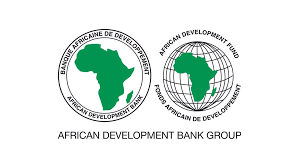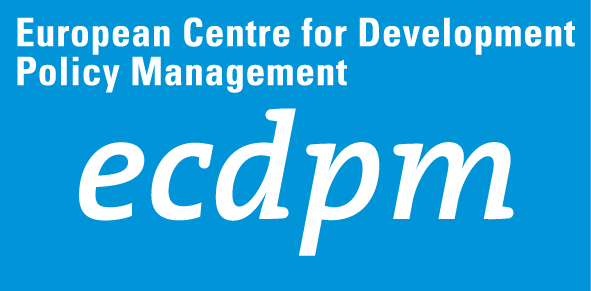African Economic Outlook 2022

The African Development Bank (AfDB) has published its African Economic Outlook for 2022.
Amid the crisis of the COVID-19 pandemic and the recovery from the economic impact that it has had, the Russian invasion of the Ukraine is threatening economic progress that has already been made as well changing the dynamics of the continent's future prospects.
Africa’s journey towards an integrated digital payments landscape and how the EU can support it

In 2021, Africa accounted for 70% of the total value of mobile money transactions globally. In recent years, the continent has experienced a rapid proliferation of digital instant payment solutions. However, many of these are not interoperable with each other, and even less so across borders. As Africa works towards building the African Continental Free Trade Area (AfCFTA), interoperability of cross-border instant payment solutions will be vital to increasing trade. Furthermore, ensuring cross-border interoperability of low value instant payment systems, notably mobile money, will be an essential step in making sure that the AfCFTA is inclusive, and that its benefits can extend to small-scale traders, many of whom are women.
Financing fragile contexts: What can development finance institutions do better?

Fragility and conflicts prevent countries from achieving sustainable development goals. They cause a loss of lives and livelihoods, displacement of people, poverty and hunger, poor health and education services, and gender and income inequalities. Although official development assistance is the most critical source of external assistance used to support the economic recovery of fragile and conflict-affected countries (FCACs), development finance institutions (DFIs) are also increasingly committed to investing in fragile contexts. However, DFI operations are still more concentrated in politically stable middle-income countries, with minimal investments directed towards FCACs.
Tackling sovereign debt for effective climate action: Towards a European agenda

This policy brief provides eight recommendations that the EU could pursue to tackle debt sustainability in the Global South and maintain the momentum for ambitious climate action.
There has been no shortage of warnings on the unsustainable debt burden in the Global South. 40% of African countries today are in, or at high risk of, debt distress. This debt crisis is linked to the climate crisis. The effects of climate change push countries to borrow more and drive up the costs of capital, leading to a vicious cycle between sovereign debt and climate risk.
Effective global climate action requires a rapid increase in the mobilisation of international climate finance, as well as fiscal space and affordable capital to implement far-reaching economic reforms. Both are increasingly out of reach for a growing number of countries.
World Energy

In this edition of ENI's World Energy, several topics pertinent to Africa are covered: a restart of the EU-Africa relationship, an unseen African energy renaissance, green recovery and a just transition.
Africa Adaptation Acceleration Program (AAAP) Strategic Support to Ghana

Ghana is vulnerable to increasing aridity, droughts and extreme rainfall events and flooding, and faces significant challenges from a changing climate to its ecology, economy, and society. In addition, Ghana has a high degree of risk to natural hazards and disasters. The country is exposed to risks from multiple weather-related hazards, primarily those due to floods and droughts in the Northern Savannah belt. There are also risks related to coastal resources, including storm surges and coastal erosion as well as landslides, earthquakes, pest infestations, and wildfires. Between 1991 and 2011 the country experienced seven major floods. In 2010, floods in the White Volta River Basin affected hundreds of thousands of people and destroyed many of their livelihoods. Urban floods also regularly impact major cities. Current development dynamics and demographic changes in Ghana further compound the risk of disasters. These dynamics are related to rural poverty, rapid urbanization, and environmental degradation. Agriculture and livestock, two sectors most impacted by weatherrelated hazards, constitute the foundation of Ghana’s economy and employ 55% of the economically active population. Climate change and variability are already affecting Ghana’s water resources with damage and flood exposure projected to result in $160 million annually.
Sustainable development in the European Union — Monitoring report on progress towards the SDGs in an EU context — 2022 edition

Sustainable development is firmly anchored in the European Treaties and has been at the heart of European policy for a long time. The 2030 Agenda for Sustainable Development and its 17 Sustainable Development Goals (SDGs), adopted by the UN General Assembly in September 2015, have given a new impetus to global efforts for achieving sustainable development. The EU is fully committed to playing an active role in helping to maximise progress towards the Sustainable Development Goals. This publication is the sixth of Eurostat’s regular reports monitoring progress towards the SDGs in an EU context.
Food Security Implications of the Ukraine Conflict

The World Food Programme has published its report on the security implications of the conflict in the Ukraine. The war has disproportionately affected the developing world, significantly worsening the situation on the African continent which relies on wheat imports from the Ukraine and Russia.
Addressing Poverty and Vulnerability in Africa During the COVID-19 Pandemic

The United Nations Economic Commission for Africa (UNECA) has published its report on addressing poverty and vulnerability in Africa during the COVID-19 pandemic.
The AfCFTA Country Business Index (ACBI) Report

The Agreement Establishing the African Continental Free Trade Area officially became operational in 2021, making it the cornerstone of trade integration in Africa. The objectives of the Area are to create a single, continent-wide market and to enhance competitiveness at the enterprise level. The African Continental Free Trade Area Country Business Index is the first comprehensive tool based on a robust methodological framework in which data are collected in a way that allows businesses to express their views on implementation of the Area.




